April 22nd is Earth Day! But if you ask us, that’s every day. We’re always down to celebrate (and protect) this diverse planet that we’re lucky enough to call home. Modern day conveniences have made our lives a lot more, well, convenient — but they haven’t come without an environmental cost.
Simply put, the travel industry has plenty of room to improve when it comes to sustainability. Our primary goal at Voyager is to get more people into the outdoors, and to do that, we have to make sure we’re treating it with the utmost care and respect.
On a purely individual level (for starters), here are a few ways to travel more sustainably:
Buy local — food and more
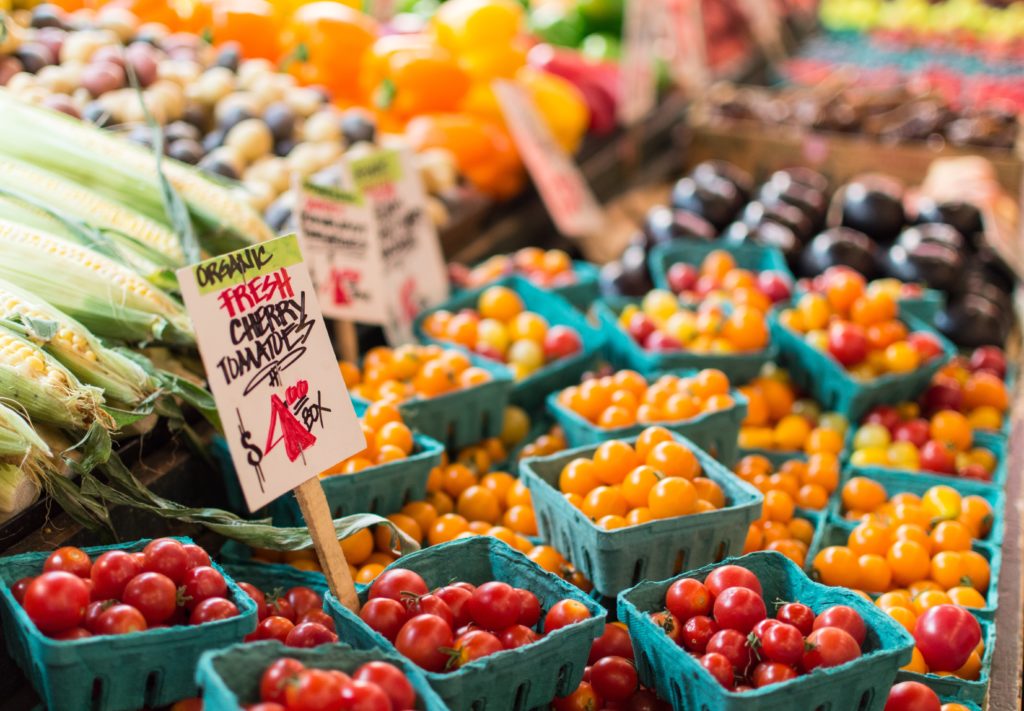
Pssst… The Pacific Northwest has awesome local markets (Seattle here). // Photo credit: @annepreble on Unsplash
Eat local. If you’ve never shopped at a food co-op before, we’ve got news for you. They’re full of some of the freshest local and organic produce, and you can find ‘em in most towns along the road. Since co-ops have relationships with nearby farmers, it’s a far greener option than hitting up a giant grocery store. Check out the Co-op Directory Service to find one near you.
Skip the big box stores. Browsing works of local artisans, or small art festivals, is always an awesome way to spend time in town between all the campsites. Not only will you reduce your carbon footprint by purchasing goods that don’t require shipping or transportation, you’ll probably find way more unique stuff.
Get some green gear
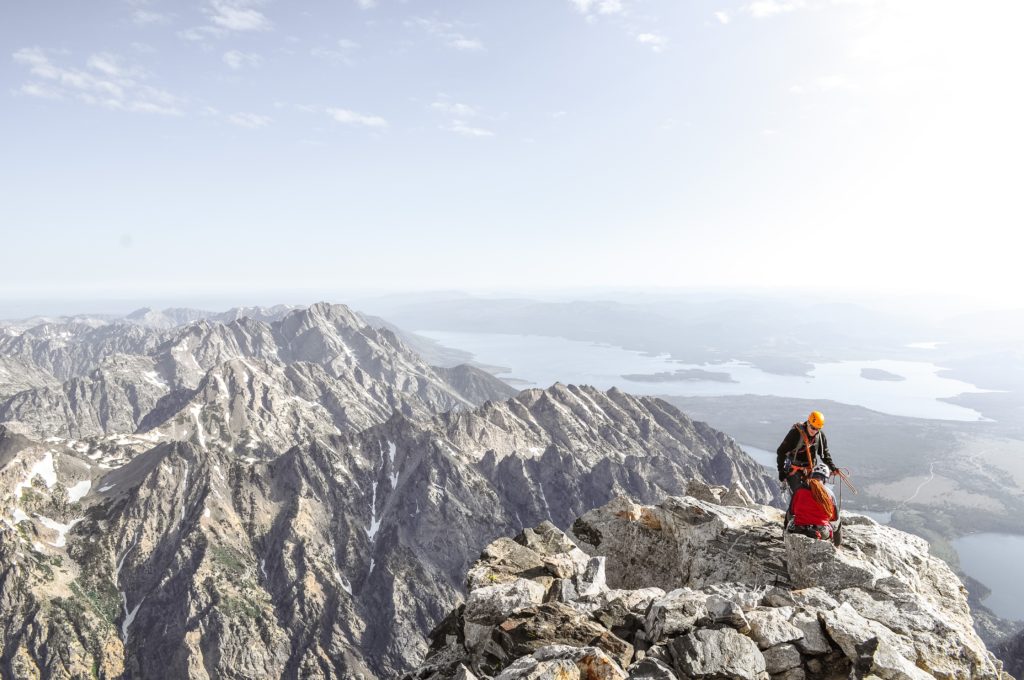
Gear goals: It takes you up a mountain *and* is kind to the environment. // Photo credit: @knightmare
Your gear’s environmental impact matters too. We love supporting outdoor clothing and supply brands who care about the planet as much as we do. For starters, you’ll want to check on the materials used — and if you’re going for bigger brands, look for company initiatives that give back to environments and communities in need. We think Cotopaxi does a great job at this.
Before buying, we like to…
- Actually look through the company’s website to learn their story and mission.
- Check their ratings on Good On You, which ranks tons of brands on sustainability.
- Feverishly Google or stalk their ‘gram feed to see if they care about our planet.
Skip the takeout and cook for yourself
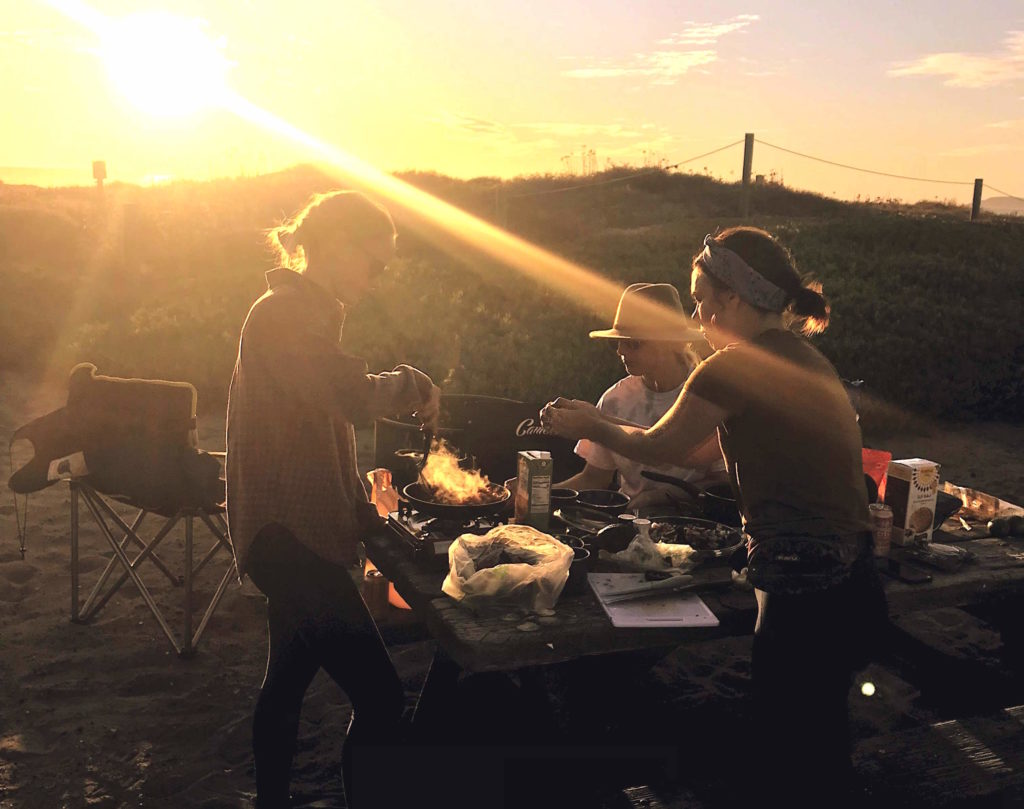
Dinner next to the van with the best company. // Photo credit: @elizabeth_raia on Instagram
Convenient as it is, takeout food is a serious culprit when it comes to plastic waste. Americans toss over 120 billion disposable plastic cups each year alone, and those numbers are just as terrifying for utensils and to-go boxes. Skip the takeout — or dine in, at least. You’ll find so many unique family-owned restaurants in the small towns between your travels, and what you’ll eat there is far more memorable than a Big Mac.
That said, you’ll find us cooking right out the back of the van on the daily. We love a good farmer’s market and inventive dishes made in the middle of nowhere. If you need somewhere to start, we’ve got plenty of recipe inspiration to share.
Leave no trace
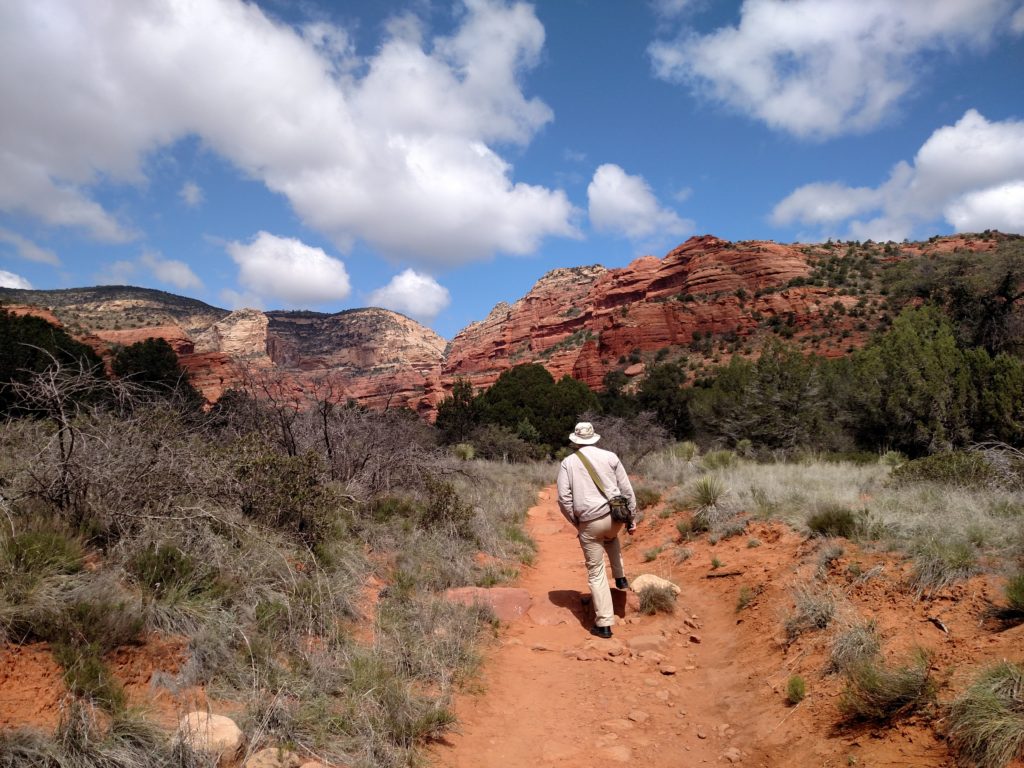
A path like that? Unbeatable. // Photo credit: @kcollingwood on Unsplash
We hope this one’s obvious. Stick to designated campsites, don’t trek off-path on sensitive terrain, and definitely pack out what you pack in when it comes to trash and recyclables. And, as tempting as it can be to snag a cool colored rock or petrified wood, don’t. It’s actually illegal to remove natural objects in national parks and protected areas, not to mention potentially damaging for sensitive ecosystems. Admire ‘em, then leave in peace so the next traveler can too.
Be green while you’re gone
This one’s easily forgotten — but makes quite a difference. Before you skip town, prep your home in the following ways to make it energy efficient in your absence:
- Turn down the temperature on your water heater
- Turn your heat low in the winter, and AC limit high in the summer
- Unplug unnecessary appliances. They still use power even when not operating.
- Consider lowering your fridge temperature if you’re not leaving much behind.
- Triple check that you’ve turned all the lights off. Yes, triple.
Choose an economical vehicle (oh hey!)
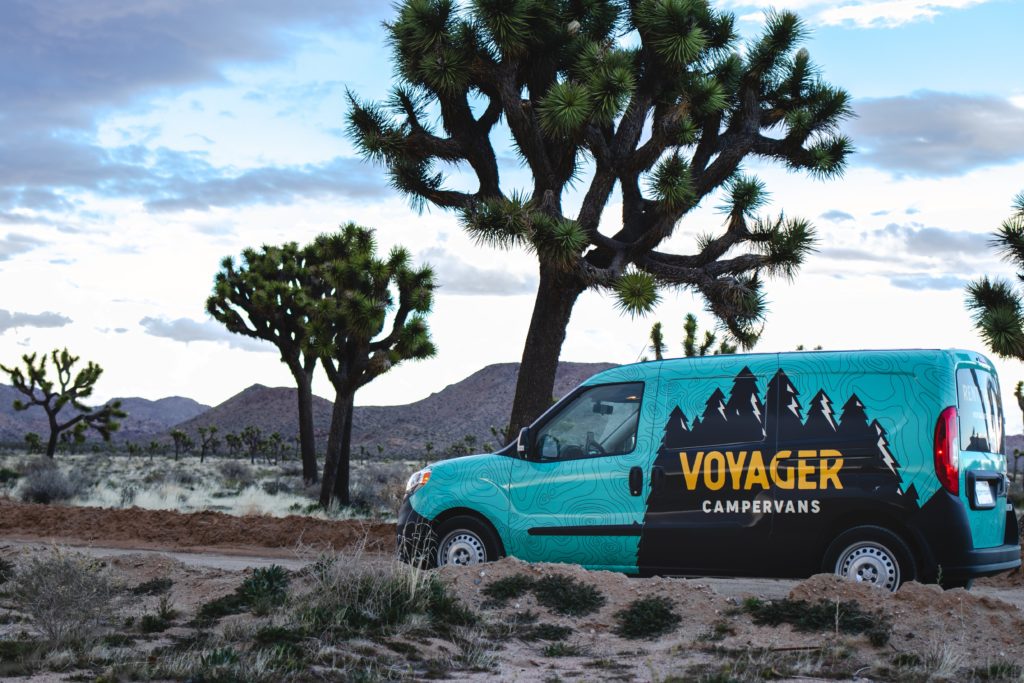
Photo credit: @garrett_shelley on Instagram
Okay, we’re a *little* biased, but there’s proof in numbers that choosing a campervan over an RV is much better for the environment. From a gas consumption perspective, it’s way more economical — and the items and resources needed to build the vehicle are far less involved. Since our vans get 28 mpg on the highway, you’ll be moving much more for less. That’s more green for Earth and your wallet. Talk about a win-win.
follow the adventure
Straight To Your Inbox: New Locations. Rental Deals. Latest Stories From The Road.
#VOYAGERVAN
Where Will The Voyager Van Take You?


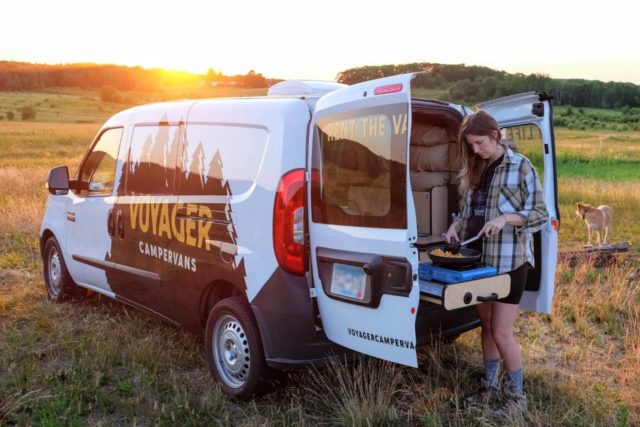
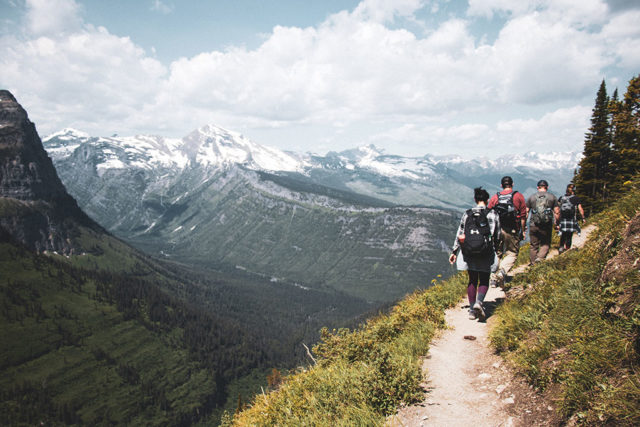
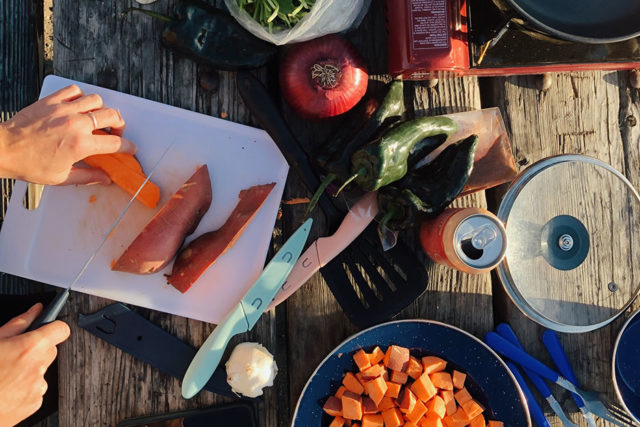
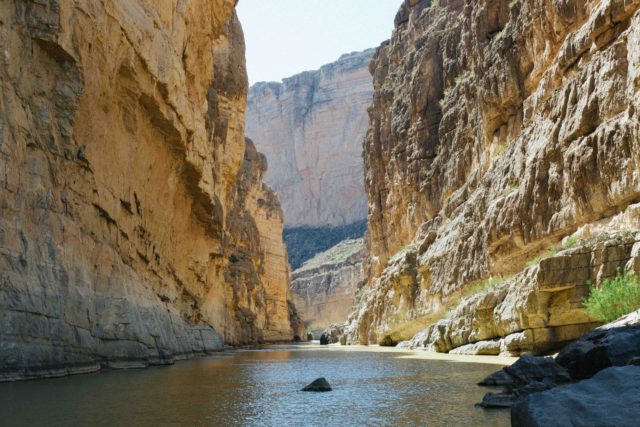

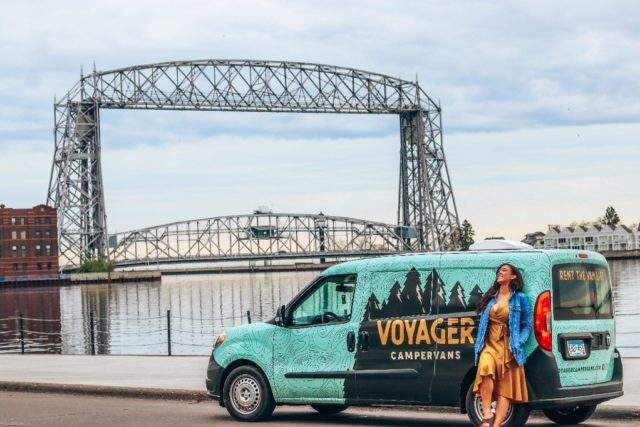
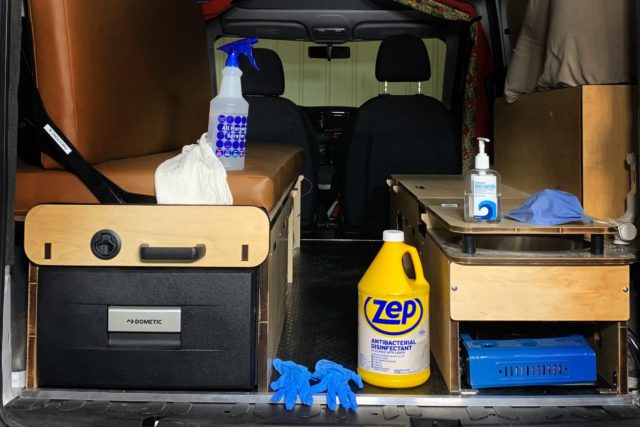
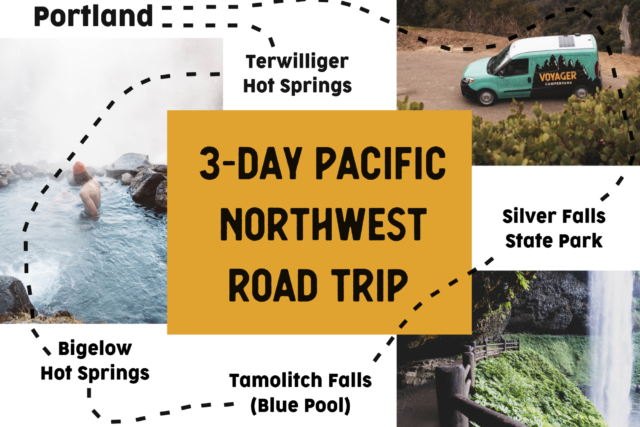
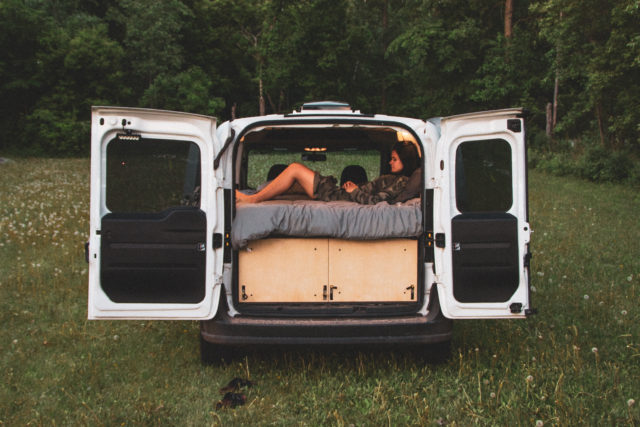
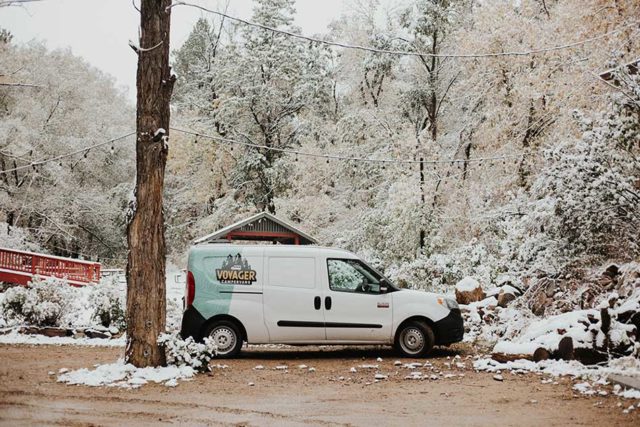
Leave A Comment